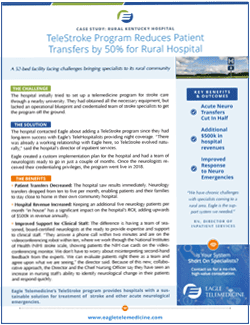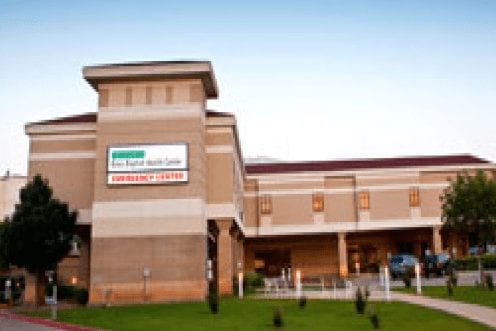Collaborative effort of TeleNeurologists will lower costs, increase revenues for rural INTEGRIS Bass Baptist Health Center; proven program helps stroke patients gain immediate access to specialized care
OKLAHOMA CITY, OK—Nov. 4, 2015—A rural Oklahoma hospital might seem like a remote place, but the nation’s finest neurologists are “beamed in” as TeleNeurologists via two-way videoconferencing to treat stroke and other acute neurology patients thereon a regular basis.
INTEGRIS Bass Baptist Health Center in Enid, OK, has immediate access to TeleNeurologists through Eagle Telemedicine, a TeleNeurology program that is also helping rural hospitals in Illinois, Kansas, Wisconsin and other states. More information about the program will be available at Eagle Telemedicine Booth #108 at the 96th Oklahoma Hospital Association Annual Meeting Nov. 4-6 in Oklahoma City.
“Imagine being two hours from Oklahoma City but getting an expert neurology physician to do a virtual house call,” said Herb Rogove, DO, FCCM, FACP, Eagle physician leader in telemedicine. “Wherever they are, our physicians can respond within 15 minutes to any patient suffering a stroke or seizure at INTEGRIS Bass, do a diagnosis, prescribe a thrombolytic drug or other medication, and determine the most appropriate level of treatment.”
Collaborative effort makes it possible
The TeleNeurology program at INTEGRIS Bass is part of an initiative by two firms that specialize in various aspects of telemedicine:
- Atlanta-based Eagle Telemedicine, which manages inpatient telemedicine practices for hospitals across the country
- InTouch Health, a Santa-Barbara, CA-based firm that provides the remote patient monitoring technology network

